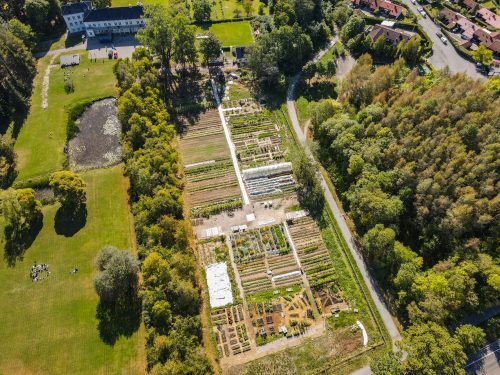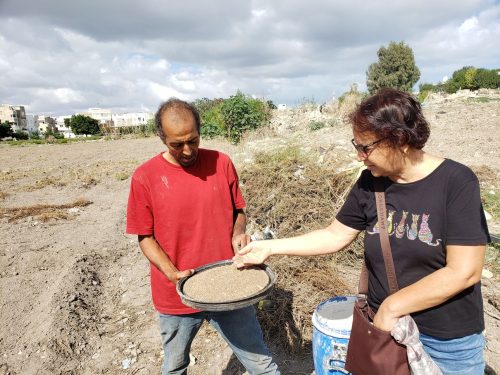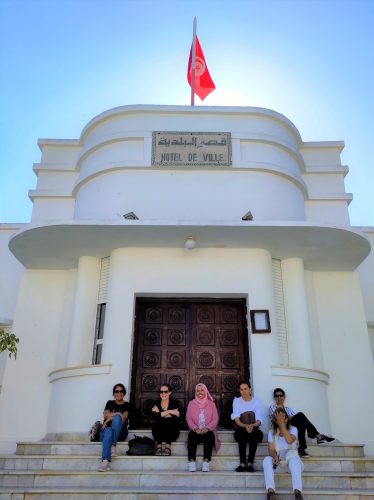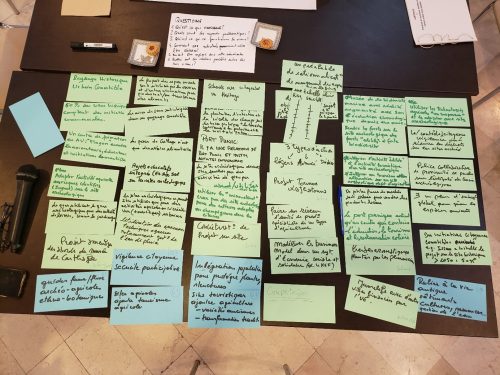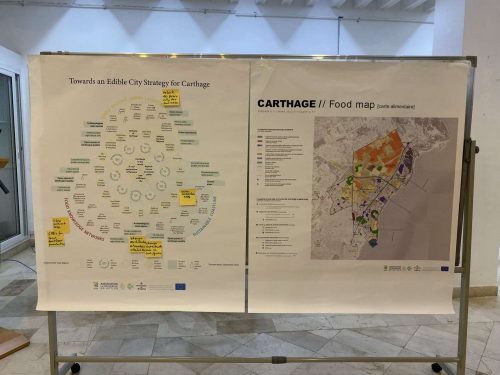After the first EdiCitNet City Exchange happened in Berlin at the end of August, the second in the series of events took place September 13-15 in Oslo and was organised collaboratively by all project partners in the city, led by the Agency of Urban Environment. Participants from a total of seven cities took part in the event.
The entire first day took place on the grounds of the beautiful Linderud Manor, a historical estate in Oslo’s Bjerke district, whose garden, the Linderud community garden (in Norwegian Linderud nærmiljohage), hosts EdiCitNet’s Living Lab. After a short introduction round, participants could meet the Oslo City Team and other initiatives working on site. The numerous projects happening on Linderud’s grounds range from job training offers for people struggling with drug addiction, organized by the Salvation Army; through outdoors teaching programs for the children from the local school; summer job opportunities for teenagers organized by EdiCitNet partner Nabolagshager; to green urban food entrepreneurs growing herbs and mushrooms in the garden. The busy day ended with a dinner in the garden, prepared by the lawyer-turned-chef Inka Chef, who used onsite-grown ingredients to prepare one of the most delicious veggie burgers we have recently tried!
The second day of the exchange took off at the recently built Økern Portal center, where, thanks to the presentations of municipal workers, participants could learn more about Oslo’s Strategy for Urban Agriculture 2019-2030, its funding scheme for urban agriculture-related projects, its Sustainable and Healthy Food Program, or the role of the Oslo center for urban ecology. Furthermore, the Økern portal is home to one of Europe’s biggest rooftop gardens, managed by U·Reist, who were kind enough to give us a tour of the CSA, the public park and the comercial garden that top the center. What a sight!
On the last day of our visit, we got to know a series of urban gardens, as diverse as Oslo itself! Our first stop was Ulvenhagen, a newly established community garden, which is a real green oasis between two major roads in an area of the city that is being quickly developed. We continued towards one of Oslo’s most famous urban gardens, Losæter, where we met the director of the Environmental Agency, learned about the experiments the gardeners are doing with companion planting and had lunch. Our City Exchange finished at the school garden Geitmyra, where every interested school in the city is offered a plot, which they can manage according to their own criteria. Additionally, the garden offers crash courses in gardening for the teachers who will later be in charge of the school plot.
Three days full of inspirational talks, networking and, above all, Oslo’s edible side! A heartfelt thank you to everyone who made this experience possible!
